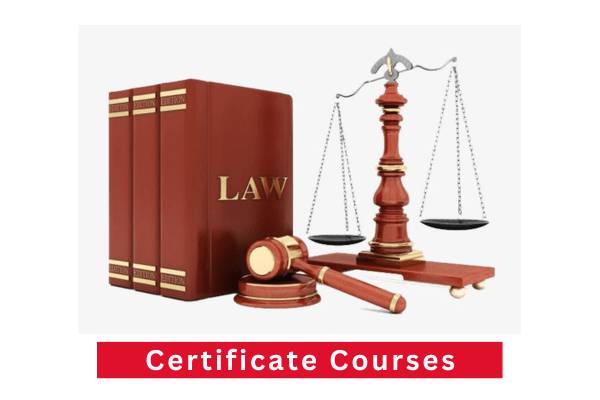.jpg)
How to Write Judgments and Orders for Judiciary Exam
Are you preparing for the judiciary exams and looking for guidance on how to excel in judgment writing? Judgment writing is a crucial aspect of the judicial services examination, testing your understanding of legal provisions and principles. Whether you are appearing for the civil judge junior division or higher judicial services exam, it is important to master the art of writing a judgment.
In this ultimate guide, we will provide you with the best judgment writing tips and a comprehensive judgment writing format for both civil and criminal cases. We will also address common mistakes to avoid and provide helpful external resources for further practice. Let's dive in!
Understanding Judgment Writing
Before we delve into the tips and format, let's first understand what a judgment is. According to section 2(9) of the Civil Procedure Code, 1908, a judgment is defined as "the statement given by the judge on the grounds of a decree or order." In simpler terms, a judgment is the judge's decision on the merits of a case, which conclusively describes the rights and liabilities of the parties based on the decree.
Judgment writing is not only essential for judicial exams but also plays a vital role in setting precedents for similar cases. It carries a significant weightage of marks in the mains examination, and a well-written judgment can leave a lasting impression on the examiner.
Best Judgment Writing Tips for Judicial Services Exam
To write the best judgment, you need to have a clear understanding of legal provisions and principles. Here are some tips to help you excel in judgment writing for the judicial services exam:
- Master the Law: The foundation of good judgment writing lies in a thorough understanding of the applicable laws. The better you understand the law, the more effectively you can apply it in your judgment.
- Learn the Format: Familiarize yourself with the format of judgment writing for both civil and criminal cases. While there may be some slight differences, the essence remains the same – applying the law to the given facts.
- Analytical Skills: Develop your analytical skills to effectively apply your knowledge of the law to the facts and issues presented in the exam paper. Understanding the crux of the law is crucial for crafting a well-reasoned judgment.
- Clarity and Conciseness: A good judgment should be clear, concise, and free from ambiguity. Avoid unnecessary repetition or lengthy explanations. Focus on presenting the key points and reasoning behind your decision.
- Use Simple Language: Avoid the temptation to use complex legal jargon or vocabulary. Write in simple language that is easily understandable by anyone. Remember, the purpose of a judgment is to communicate the decision clearly.
- Logical Reasoning: Provide logical and sound reasoning for your decision. Support your conclusions with references to relevant laws and precedents set by higher courts. This will add credibility to your judgment.
- Practice, Practice, Practice: Practice previous year's judgment writing questions to familiarize yourself with the exam pattern and gain confidence in your writing skills. Pay attention to time management to ensure you can complete the task within the given timeframe.
Judgment Writing Format (Civil and Criminal)
Now let's explore the format of judgment writing for both civil and criminal cases. While there may be slight variations, the following format will give you a clear understanding of how to structure your judgment:
Civil Judgment Writing Format
- Court Details: At the top of the page, mention the name of the court and the presiding judge.
- Case Details: On the left side, write the civil suit number and the year it started.
- Plaintiff Details: Below the case details, write the details of the plaintiff, including their name, residence, and occupation.
- Defendant Details: After the plaintiff details, provide the details of the defendant, including their name, residence, and occupation.
- Date of Judgment: In the center, write the word "JUDGMENT" in bold, followed by the date of the judgment.
- Introduction: The first paragraph should briefly describe the nature of the suit.
- Facts of the Case: Subsequent paragraphs should outline the facts admitted by both parties and any statements or confessions made by the defendant.
- Case Presentation: Present the case of the plaintiff and the defendant, concisely summarizing their arguments.
- Issues and Findings: Enumerate the issues to be determined and provide your findings on each issue.
- Evidence and Reasoning: Describe the evidence presented, the reasons for your findings, and the significance of the evidence for the case.
- Property Description (if applicable): If the case involves property, provide a detailed description.
- Conclusion: Summarize your decision and provide any necessary orders, such as fines or damages.
- Signatures and Seal: Sign each page of the judgment, affix the court seal, and include your designation as the judge.
Criminal Judgment Writing Format
- Court Details: Similar to civil cases, mention the name of the court and the presiding judge at the top of the page.
- Case Details: Write the criminal case number and the relevant details, such as the charges and the police station involved.
- State/Prosecution Details: Below the case details, provide the details of the state/prosecution, including the name, and any relevant information.
- Accused Details: After the prosecution details, provide the details of the accused, including their name, residence, and any necessary information.
- Date of Judgment: In the center, write the word "JUDGMENT" in bold, followed by the date of the judgment.
- Introduction: The first paragraph should briefly describe the nature of the charges.
- Facts of the Case: Subsequent paragraphs should outline the facts admitted by both parties and any statements or confessions made by the accused.
- Case Presentation: Present the case of the prosecution and the defense, concisely summarizing their arguments.
- Issues and Findings: Enumerate the issues to be determined and provide your findings on each issue.
- Evidence and Reasoning: Describe the evidence presented, the reasons for your findings, and the significance of the evidence for the case.
- Weapons Description (if applicable): If the case involves weapons, provide a detailed description of any weapons discovered or seized.
- Conclusion: Summarize your decision and provide any necessary orders, such as conviction or acquittal, and the appropriate punishment.
- Signatures and Seal: Sign each page of the judgment, affix the court seal, and include your designation as the judge.
Remember, this format is a general guideline, and you should adapt it as per the specific requirements of your exam. Ensure that your judgment is specific, well-structured, and reflects a clear understanding of the law and its application to the given facts.
Common Mistakes to Avoid in Judgment Writing
Under the pressure of the exam, candidates often make common mistakes in judgment writing. Here are some pitfalls to avoid:
- Failure to Specify Judge's Class: In civil cases, it is essential to mention the class of the judge, such as First Class or Second Class Judge, as specific questions may be asked in the examination.
- Personal Information Disclosure: Avoid including personal information, such as your name or age, in the judgment. Maintain a professional tone throughout.
- Inaccurate or Imaginary Addresses: Ensure that you provide accurate addresses, whether it is the prosecution's address or the defendant's address. Avoid using imaginary or anonymous addresses.
- Writing in Small Letters: Judgment writing should be in capital letters to ensure clarity and legibility.
- Including Non-Essential Information: Only include information in the judgment that is relevant to the case. Avoid including fake or non-essential details.
By being aware of these common mistakes, you can ensure that your judgment is error-free and presents a professional image.
Helpful External Resources
To further enhance your judgment writing skills, here are some external resources that provide sample judgments and additional guidance:
Coming Soon….
These resources will give you practical examples and additional insights into creating effective judgments.
Remember, practice makes perfect. Dedicate time to practice judgment writing regularly, and seek feedback from experienced mentors or faculty members to improve your skills.
In conclusion, judgment writing is a crucial component of the judiciary exams. By mastering the law, understanding the format, and practicing regularly, you can develop the skills needed to excel in judgment writing. Apply the tips and format provided in this guide, avoid common mistakes, and make use of external resources for further practice. With dedicated preparation and practice, you can confidently tackle judgment writing in the judiciary exams and achieve success in your legal career.
Good luck with your preparation!


.png)




.png)
